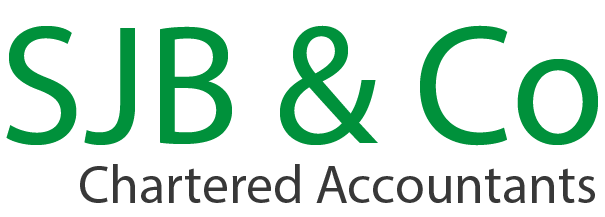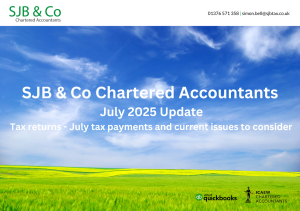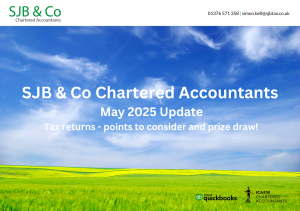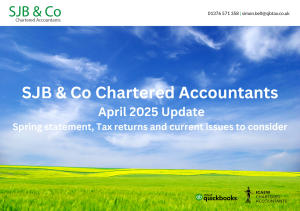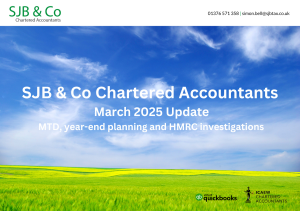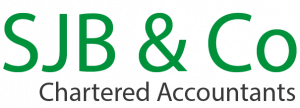Self-employed income support scheme
Have you claimed the SEISS grant? The first grant under the SEISS has to be claimed by 13 July 2020, so if you believe you are eligible on the basis that you have been adversely affected by coronavirus on or before 13 July 2020 then you should submit your claim without delay.
The second grant under the SEISS will be available to those adversely affected on or after 14 July 2020 up to 19 October 2020 (end date yet to be confirmed). The grant will be for 70% of average monthly trading profits up to £6,570 for the three months. Claims for the 2nd grant can be made from 17 August 2020 when a claims portal will open for tax payers to use and should be made by 19 October 2020.
Further details on SEISS can be found at: https://www.gov.uk/guidance/claim-a-grant-through-the-coronavirus-covid-19-self-employment-income-support-scheme
Child benefit – Could you become eligible this year?
Child benefit is reduced where the income of one parent exceeds £50,000 and falls to zero once income exceeds £60,000. In the current year if parents’ income falls as a result of the current situation, then families may become eligible for child benefit. If families consider that their income will fall in the current year and so become eligible for child benefit, they should make a claim for child benefit as soon as possible as claims can only be back dated by three months. If it turns out that income exceeds the £50,000 threshold then the child benefit will be clawed back after the end of the tax year through the self- assessment system.
If child benefit has been claimed for previously, then parents can ring the governments child benefits office on 0300 200 3100 and ask for benefits to be reinstated. If parents need to make a new claim for child benefit, an online claim form needs to be printed off and sent by post, typically applications may take up to three months.
31 July 2020 Self-assessment Tax Payments – deferral to 31 January
There is an option to defer the payment of the 31 July payment on account until 31 January 2021 full details are at https://www.gov.uk/guidance/defer-your-self-assessment-payment-on-account-due-to-coronavirus-covid-19. No action is required to defer payment and no interest or penalties will be charged provided it is paid by 31 January 2021.
Points to remember are:
- This a deferral, the tax still needs to be paid by 31 January 2021, so you need to budget for it;
- Other tax due by 31 January will be the balance of 2019-20 tax liabilities and the first payment on account for 2020/21;
- If you are likely to have difficulties paying tax in January 2021 then you should consider your options with us, which may include a time to pay arrangement with HMRC in advance of 31 January 2021;
- Although HMRC statements show tax due 31 January 2021, you do not have to defer and can pay at any time up to 31 January.
Pension contributions
Following the March budget, the level of income at which the pensions annual allowance starts to be reduced has been increased from £150, 000 to £240, 000. The minimum pensions allowance that high income individuals have has been reduced from £10,000 to £4000. This means that at an adjusted income level of £300,000, the pension allowance is £10,000 (the current level) and at an income of £312,000 the minimum annual allowance of £4000 is reached.
Individuals with high incomes should review their pension contributions and consider adjustment as appropriate. Individuals with incomes between £150, 000 and £300,000 may find that they can increase their contributions. Individuals with income over £300,000 will need to reduce contributions potentially to £4000 to avoid exceeding the pension annual allowance and should consult with their pension advisors as soon as possible to avoid issues arising.
Losses on shares
If you have shares standing at a loss following recent market movements then there may be scope to take advantage of the situation depending on personal circumstances which could include:
- Crystallise the losses by making a sale of shares, bed and breakfasting no longer works so if you wish to hold on to the shares you need to:
o Wait more than 30 days before repurchasing;
o Re-purchase via an ISA;
o Re-purchase in spouse’s name (note transfer of shares will not be effective).
- With lower share values, now may be a good time to make gifts at a lower or nil capital gains tax cost and lower value for inheritance tax purposes.
- Lower shares values may mean now is a good time to transfer shares into ISA holdings (note the shares do need to be sold and then repurchased in the ISA.)Please feel free to forward this newsletter to any colleagues or friends who may be interested in it.
For more information or to discuss any issues raised above please contact Simon Bell by phone on 01376 571358 or email [email protected].
Please feel free to forward this newsletter to any colleagues or friends who may be interested in it.
This newsletter is written in general terms and therefore cannot be relied on to cover specific situations; applications of the principles set out will depend on the particular circumstances involved and it is recommended that you take professional advice before acting or refraining from acting on any material in the newsletter.
